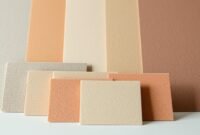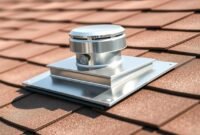Mold has been discovered in the basement. It frequently occurs to us. It could simply be a little spot, or it might be a huge spread. In either case, you’re unsure of what to do. Can mold in the basement affect the upstairs? You might not use the basement often if mold has grown without your notice.
You could ask yourself: How crucial is getting rid of what’s already there? An issue in the basement must be just that, right? A challenge in the cellar.
The impact mold in the basement may have on the rest of your home may surprise you. You risk endangering your family’s health problems and your own by allowing mold to grow in the basement.
If you don’t address the issue, mold from your home can spread and cause various health problems for your family.
Can Mold in Basement Affect Upstairs?
Yes, the upstairs is impacted by the mold in the basement. Mold spores can move through the air and contaminate the source of fresh air. This implies that the mold can enter the rest of the house when you open the basement door.

This does not imply that the only option is to close the basement door. On the contrary, mold has a higher chance of growing in a sealed-off basement.
If its air supply is not frequently interrupted, the mold has moisture to grow in and dust to eat. Can mold in the basement affect the upstairs? The mass of spores is once again released into the main home when you must ultimately open the door again.
Not to add that any mold on the basement can adhere to everything there. If you keep objects in your basement for storage and remove them from the warehouse, mold could follow.
Instead of always being on the objects, it may be on the cardboard box the products are kept in. As a result, you might not anticipate how mold from the basement might spread throughout the house.
How to Prevent Mold in Basement
- Make Sure You Have a Well-Ventilated Basement
Sealing your basement is one of the most crucial things you can do to flood-proof your house. You may keep water out of these apertures with a simple caulk seal. To keep water out, caulk windows, basement walls, fissures, and other locations.
- Repair Any Cracks in Your Basement
Can mold in the basement affect the upstairs? Molds can thrive in damp homes, so fixing cracks in your basement walls is crucial. A qualified waterproofing specialist can seal cracks and thoroughly fill them. On the other hand, mold can weaken your home’s walls and harm the insulation, resulting in structural problems.
- Use a Dehumidifier
One of the critical factors that promote the growth of mold is high humidity levels. Using a dehumidifier can help keep the air in your basement dry and lower the chance of mold formation.
Dehumidifiers are available in various sizes and may be mounted on the wall, the floor, or the ceiling. Select a size that fits the room, and regularly check the humidity levels to ensure they stay below 60%.
- Clean and Disinfect Regularly
Maintaining a regular cleaning and disinfection schedule is one of the most crucial things you can do to stop the mold in the basement cost your house. In addition, maintaining a clean, clutter-free home is vital because mold thrives in moist, dark environments.
You should quickly clean up spills or leaks and propose weekly surface cleaning with a vinegar or bleach solution. You also want to open the blinds and drapes to let in as much natural light as possible.
- Inspect Your HVAC System
One of the significant ways that mold may spread throughout your house is through your HVAC system. Make sure to have your central air conditioner regularly serviced if you have one. In addition, you should change the filters every few months and check the appliance for leaks or cracks.
Make sure to get the ductwork cleaned and examined every few years if you have a forced air heating system. You can help prevent mold growth in your home and keep your family safe by following these easy actions.
How to Get Rid of Basement Mold
Mold and mildew are frequent household annoyances that, over time, can harm a house. These biological infestations can have a detrimental effect on the health of persons residing in the house. Therefore, learning how to eliminate mold from the source is essential.
- Protect yourself and prepare the space.
- Damaged items should be removed and thrown away.
- Spray the area with a mold-killing agent.
- Use a brush or cloth to scrub the mold, then let the area dry thoroughly.
Don’t worry about mold if you follow proper prevention and removal steps to keep your home safe and free from potential health problems.
Final Thoughts
So, Can mold in the basement affect the upstairs? If left untreated, mold and mildew can seriously harm your health and hasten the deterioration of your house. You can prevent mold from growing by purchasing a dehumidifier to reduce moisture in the home.
If you have a serious mold problem in your home, it’s important to address it promptly as exposure to black mold can lead to health issues such as asthma attacks. A professional mold remediation service can properly assess the extent of the mold and provide effective mold removal solutions.
In addition, consider applying a moisture-blocking primer to the walls and ceiling to stop water vapor from penetrating and fostering mold growth behind the drywall.


